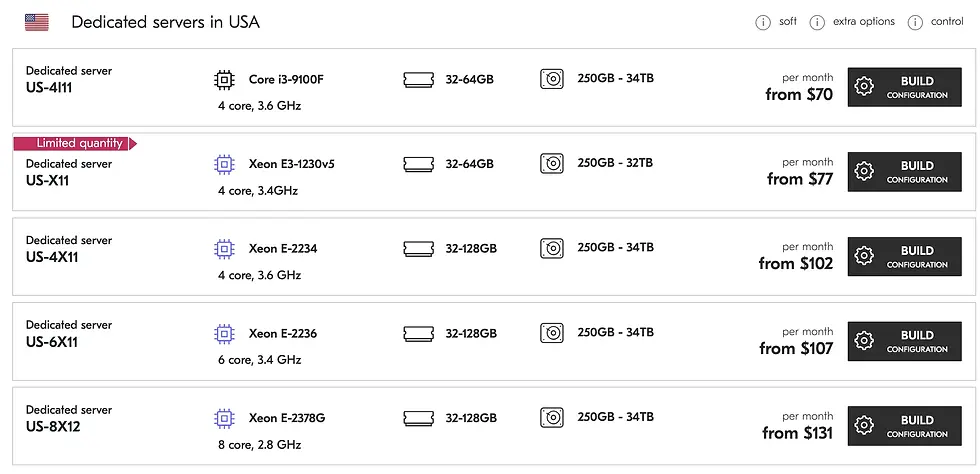Renting a Server: Why It Matters for Your Business
- Sip the Style

- Aug 24, 2025
- 4 min read
Learn why renting a server matters for your business, offering flexibility, cost savings, and reliable performance to support growth and security.

Have you ever wondered why some companies grow fast while others keep struggling with endless technical issues? The answer is often hidden in something as simple — and as crucial — as how they manage their digital infrastructure. Server rental may not sound glamorous, but it can be the backbone of stability, speed, and growth for modern businesses. Let’s take a closer look at what renting a server actually means, why it’s useful, and how it could directly affect your company’s bottom line.
What Does It Mean to Rent a Server?
Renting a server is like leasing an office space: you don’t have to own the building to run your business inside it. Instead of buying expensive hardware, maintaining it, and hiring IT specialists to fix it when something goes wrong, you “lease” computing power from a provider. The server is located in a secure data center, connected to fast internet channels, and monitored around the clock.
The beauty of this model is flexibility. Need more storage, stronger processing power, or better security? You don’t have to shop for new equipment — you simply adjust your rental plan. It’s like upgrading from a small co-working desk to a private office overnight.

Why Businesses Choose Server Rental
1. Cost Efficiency Without Hidden Surprises
Imagine buying a car just to drive it twice a week. That’s what happens when companies purchase their own servers but rarely use their full capacity. Renting a server removes that inefficiency. You pay only for what you actually use.
According to a Deloitte report, businesses can cut IT infrastructure costs by 30–40% when moving from owned servers to hosted ones. That money can be redirected to marketing, salaries, or product development — things that directly drive growth.
2. Reliability and Peace of Mind
A broken office printer is annoying. A broken business server is a nightmare: lost data, downtime, and angry clients. With rental services, providers handle hardware replacement, power backups, and cooling systems. Many guarantee 99.9% uptime, which means you don’t have to stay awake at 3 a.m. worrying about whether your website is still online.
3. Security That Keeps Pace with Threats
Cybercrime damages are expected to cost the world $10.5 trillion annually by 2025 (Cybersecurity Ventures). Sounds scary, right? Renting a server gives you enterprise-level firewalls, regular software updates, and even DDoS protection — things that are expensive and difficult to set up on your own.
4. Scalability Without Growing Pains
Let’s say you run an online store. One day you have 100 visitors, another day — 10,000, thanks to a viral TikTok post. If your hardware can’t handle the spike, you lose sales. Renting a server is like having an expandable room: it grows when you need space and shrinks when you don’t.
Server Rental in Everyday Life: Analogies That Work
Like renting an apartment: You don’t need to buy a building to have a place to live. Renting gives you flexibility to move, upgrade, or downgrade.
Like Netflix vs. DVD collection: You don’t own the disks, but you get access to a huge library whenever you want, without the clutter.
Like a gym membership: Instead of buying all the equipment, you pay for access to a facility that already has everything you need.
These examples show why renting makes sense — it’s about focusing on what really matters without carrying unnecessary baggage.
Common Misconceptions About Renting a Server
“Isn’t it less secure than having my own server?”Not really. Professional data centers often have stronger physical and digital security than a small office setup.
“Won’t it be too expensive in the long run?”Actually, it’s the opposite. Buying a server involves high upfront costs, maintenance, and upgrades. Renting spreads expenses evenly and transparently.
“Do I lose control?”No. You still manage your data, applications, and services. The provider simply takes care of the technical headaches.
When Does Renting a Server Make Sense?
If you recognize yourself in one of these scenarios, renting might be the right choice:
You’re a startup with limited budget but high growth potential.
You’re an e-commerce store with unpredictable traffic spikes.
You handle sensitive client data and need professional security.
You’re expanding internationally and want your services available 24/7.
The Business Value Behind Server Rental
When we talk about renting a server, it’s not just about hardware. It’s about speed to market, stability, and customer trust. Every second of downtime costs money — Amazon once estimated that 1 minute offline costs them $220,000. While your numbers may be smaller, the logic is the same: can you afford to lose customers because of poor infrastructure?
Think of it as insurance for your digital life. It may not be visible, but when it fails — the damage is immediate.
Conclusion: Is It Worth It?
So, what is server rental, really? It’s the freedom to grow your business without being chained to costly machines in your office basement. It’s the flexibility to scale when opportunity knocks. And it’s the peace of mind that comes with knowing someone else is watching the blinking lights at 2 a.m. so you don’t have to.
If you’ve been hesitating, ask yourself: what would you prefer — to spend time firefighting server issues or to focus on your customers?
The choice is obvious. Renting a server is not just a technical decision. It’s a strategic move that can put your business one step ahead. Don’t wait until downtime or cyberattacks force you to act — explore your options now and give your business the reliable foundation it deserves.



Comments